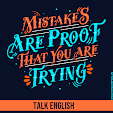Applied Grammar
Alphabet
The alphabet consists of letters.
Letters
A letter is main sign which a language
compound of. Every letter has its specific.
The English alphabet consists of twenty
six letters.
There are two types of letters
- (i) Capital letters
- (ii) Small letters
These letters can also be divided into.
(i) Vowels (ii) Consonant
(i) Vowels
Out of twenty six alphabets the given five words.
a,e,i,o,u are called vowels.
Speech sound can be sounded by vowels itself.
A vowel can be sounded by itself
(ii) Consonant
The remaining twenty one letters out of twenty six instead of five vowels are called consonant .These are a,b,c,d,e,f,g,h,i,j,k,l,m,n,o,p,q,r,s,t,u,v,w,x,y,z.
Word
A smallest meaningful unit which is formed by the combination of some letters . For example if we combine the M, a and n then “Man” is formed.
Sentence
A sentence is a combination or group of words that grammatically makes a complete sense.
- I love my father.
- Always speak the good.
- The goat gives milk.
Sentence Structure
Phrase
If a group or combination of words fails to make a complete sense, it is called phrase.
- On the phone.
- In the bowl .
- At university.
Subject
The word or words expressing person or thing about which something is said are called the subject as
- John (subject) eats sandwich
- They (subject) play football
- Tanzania (subject) reads novel.
Verb
A verb is a word used for saying something about the activity of a person or a thing as
- she reads (verb) a book.
- He played (verb) football.
- I have received (verb) your letter.
Object
It indicates what has been done or said by the subject as
1-I wrote application (object)
2- The maid is washing the dishes (object)
Helping verb
Helping verbs are those which are used with common verbs to make tenses, passive forms, negative and questions.
- I am(helping verb) eating cake.
- They are (helping verb) watching television.
- They have (helping verb) gone.
Following Helping verbs are:
Is, Am, Are, Was, Were, Shall, Should, will, would, Can could, May Might, Must, Do, Does, Did, Has, Have, Had, Ought etc.
Part of Sentence
There are two parts
- Subject
- Predicate
(i) Subject
The word or words indicating the person or thing about which something is said are called subject of the sentence.
- The baby(subject) laugh.
- Alex(subject) plays games.
- Sarah(subject) sings a song.
(ii) Predicate
The word or words which say something about the person or thing indicated by the subject are called predicate.
- Alex is reading a novel.(predicate)
- Sarah became a doctor. ( predicate)
- He will take meal. ( predicate)
Kind of Sentence
There are five kinds of sentences.
- Assertive
- Imperative
- Interrogative
- Optative
- Exclamatory
(1) Assertive Sentence.
An Assertive sentence is a statement of affirmation or negation
- I am going to home
- He did write a application.
- Ahmad is good boy
(2) Imperative Sentence.
An Imperative sentence contains some command or request
- Stop eating.
- Please talk to me.
(3) Interrogative sentence
In an Interrogative sentence is inquired about something.
- What are you eating?
- Where do you want to go ?
- Did you see the birds yesterday ?
(4) Optative Sentence.
An Optative sentence expresses some wish.
- May joy spread through your everything.
- Would that I was a Queen.
- I wish enough happiness to keep your spirit alive.
(5) Exclamatory sentence
An Exclamatory sentence expresses some strong feelings of mind,
- Alas! I am sad.
- Hurrah! We have won the game.
- What a beautiful tiger I have seen!






it is very useful for beginner .. waiting for new posts
ReplyDelete